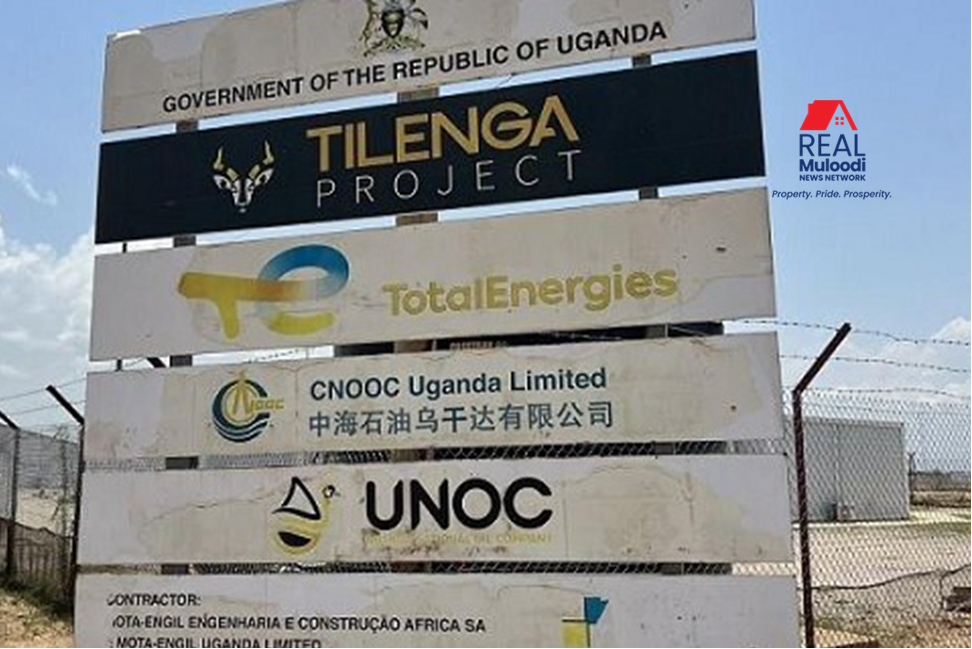UGANDA, Hoima | Real Muloodi News | A group of seven human rights lawyers, led by Eron Kiiza, has filed a petition with the Judicial Service Commission, alleging judicial misconduct, incompetence, and bias against Justice Jesse Byaruhanga Rugyema in a Tilenga Oil Land Dispute case.
The petition calls for disciplinary action against the judge and seeks to bar him from presiding over oil-related cases in the future, citing concerns about the integrity of the justice system.
The controversy stems from a ruling by Justice Byaruhanga on December 8 in favour of the government against 42 landowners who rejected proposed compensation rates related to the Tilenga project by TotalEnergies.
The compensation was intended for the relocation of landowners to facilitate the development of oil infrastructure.
In response, the lawyers argue that the judge displayed misconduct, bias, and irregularities during the proceedings.
The lawyers’ key contention revolves around the speed at which the case was handled. Typically, land cases take years to resolve, but this particular matter was disposed of within four days of filing.
The petitioners argue that such unprecedented speed denied the respondents a fair hearing, especially considering the complexity of the case and the implications for the affected landowners.
Eron Kiiza emphasised the need for respondents, who rejected the government’s compensation, to have adequate time to prepare a defense.
The petition questions how the judge expected meaningful engagement from the respondents within the brief timeframe, considering the gravity of the matter involving residences, livelihoods, and property.
The lawyers further assert that Justice Byaruhanga conducted the proceedings with a lack of balance, allowing evidence and proceedings from one side only. This, they argue, demonstrates bias and incompetence, compromising the rule of law in Uganda.
As the legal battle unfolds, Project Affected Persons (PAPs), whose land faces compulsory acquisition for the oil pipeline, are also expressing dissatisfaction.
Landlord Serenios Kamutureki highlights the lack of sufficient time given to file a defence and the challenges of accessing information during the proceedings.
Dicken Kamugisha, CEO of the Africa Institute for Energy Governance, stresses the impracticality of resolving land matters within four days and suggests a minimum of 15 days for respondents to file responses.
The lawyers’ petition underscores the potential negative impact of the ruling on the rights of Project Affected Persons.
They argue that the rapid handling of the case renders compensation negotiations unnecessary, raising concerns about the disenfranchisement of citizens. This legal saga is reminiscent of the 2016 debate over compulsory land acquisition, where the government sought to amend Article 26 of the Constitution.
The proposed amendment, which ultimately failed, aimed to allow the government to acquire property before compensation in certain circumstances.
The recent ruling brings attention back to the constitutional principles surrounding property rights and fair compensation.
The outcome of the Tilenga Oil land dispute will not only shape the trajectory of oil-related compensation cases but also set precedents for the protection of property rights and the rule of law in Uganda.
The Judicial Service Commission faces the crucial task of addressing the serious allegations against Justice Byaruhanga to uphold the integrity of the judiciary.
READ MORE LIKE THIS:
Tilenga Oil Project: Affected Persons Get New Homes from TotalEnergies EP Uganda
Petroleum Project Land Acquisition Process Prioritises Project-Affected Persons (PAPs)



